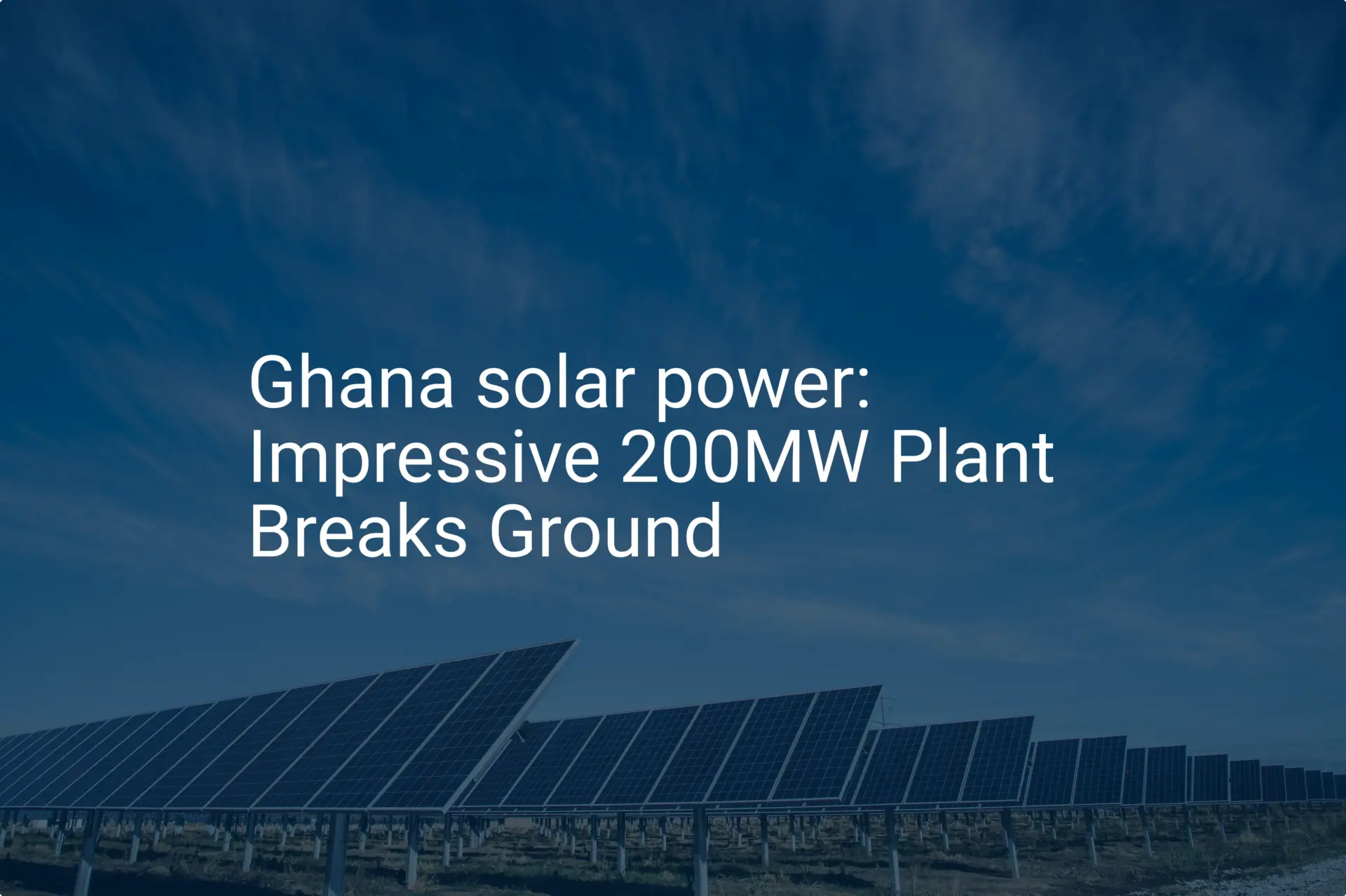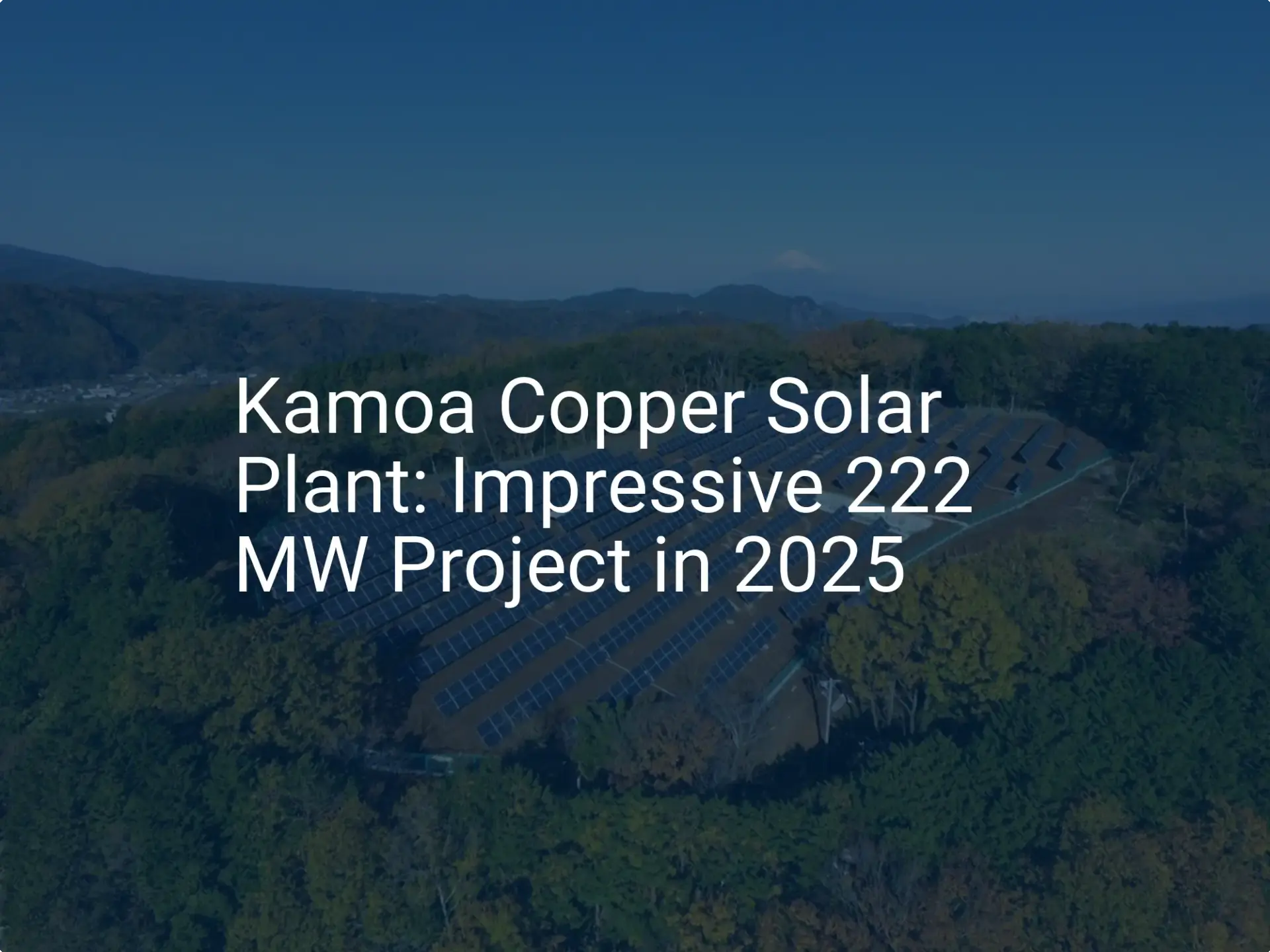Many entrepreneurs looking at West Africa’s growing energy market see a clear opportunity in solar manufacturing. However, the initial capital required to set up a production facility can be a significant barrier. In Ghana, a strategic government initiative—the Renewable Energy Fund (REF)—was created specifically to help overcome this challenge.
This fund is more than just a source of capital; it represents a national commitment to building a domestic renewable energy industry. For any entrepreneur entering this sector, understanding how to access this support can be the difference between a business plan on paper and an operational factory. This guide offers a detailed look at the Renewable Energy Fund, its eligibility criteria, and the application process for aspiring solar module manufacturers.
What is the Renewable Energy Fund?
Established under Ghana’s Renewable Energy Act of 2011 (Act 832), the Renewable Energy Fund is a financial tool designed to promote and develop the country’s renewable energy resources. It provides financial support for activities that advance the manufacturing, distribution, and use of renewable energy.
The fund is financed through several channels, including:
- A levy on electricity consumption billed to consumers.
- Appropriations made by Parliament.
- Grants, donations, and other voluntary contributions.
These resources help Ghana work toward the targets outlined in its Renewable Energy Master Plan, which includes increasing the proportion of renewable energy in the national generation mix. For an entrepreneur, this means the fund is actively seeking viable projects that align with this national strategy.
Can a New Solar Manufacturing Business Apply for REF Support?
Yes, a solar manufacturing startup is exactly the type of enterprise the Renewable Energy Fund was created to support. The fund’s mandate includes promoting local content and building domestic capacity, which makes new manufacturing ventures a natural fit. However, eligibility depends on meeting several specific criteria.
An applicant must be:
- A citizen of Ghana.
- A company incorporated under Ghanaian law.
- A registered body corporate operating in Ghana.
In addition, any project seeking support must be licensed by the Energy Commission, the main regulatory body. This underscores the importance of proper legal and technical planning from the outset. For an application to be successful, the groundwork for setting up a solar panel manufacturing plant and obtaining the necessary permits must already be well underway.
The review committee also weighs a project’s viability heavily. A successful application must be backed by a comprehensive business plan that demonstrates both technical feasibility and long-term financial sustainability.

A Step-by-Step Guide to the Application Process
Navigating the application process for a government fund requires a structured and methodical approach. While the Energy Commission can update the specifics, the general process follows a clear path of evaluation and approval.
Step 1: Proposal Submission
The process begins with submitting a formal application and detailed project proposal to the REF Secretariat. This document should detail the business case, technical specifications of the proposed factory, financial projections, and the expected contribution to the local economy.
Step 2: Technical and Financial Appraisal
Once submitted, the proposal is reviewed by a Technical Committee. This committee assesses the project’s technical soundness, the credibility of its financial forecasts, and its alignment with the REF’s objectives. Based on experience from J.v.G. turnkey projects, this stage often involves detailed scrutiny of the proposed production technology and the realism of the projected output figures.
Step 3: Board Review and Approval
Proposals recommended by the Technical Committee are then presented to the Renewable Energy Fund Board for a final decision. The Board evaluates the project from a strategic perspective, considering its potential impact on Ghana’s energy goals and industrial development.
Step 4: Agreement and Disbursement
Upon approval, a formal grant or loan agreement is signed between the applicant and the REF. This legal document outlines the terms of the financial support, including disbursement schedules, reporting requirements, and project milestones.

What Forms of Support Does the REF Provide?
The Renewable Energy Fund offers financial assistance in two primary forms, suiting the needs of projects at different stages of development.
- Grants
Grants are non-repayable funds, typically provided for specific purposes that stimulate market growth. For a solar manufacturing startup, this could include:
- Capital Subsidies: Direct financial contributions to reduce the high initial solar factory investment cost, particularly for essential machinery and equipment.
- Research & Development: Funding for projects aimed at adapting solar technologies to local conditions or improving manufacturing processes.
- Feasibility Studies: Support for conducting in-depth market analysis and technical assessments before committing to a full-scale investment.
- Concessional Loans
The REF also provides loans with interest rates and repayment terms that are more favorable than those available from commercial banks. This form of support is designed for projects that are commercially viable but may struggle to secure affordable financing through traditional channels.
Navigating Common Hurdles in the REF Application
While the opportunity is significant, securing support from the REF is a competitive process. Applicants often face a few common challenges that can be overcome with careful preparation.
- Insufficient Detail in the Business Plan: A common reason for rejection is a business plan that lacks depth. Financial projections must be robust, and the technical plan must clearly justify the choice of equipment and production capacity. A vague proposal is unlikely to pass the appraisal stage.
- Failure to Demonstrate Local Impact: The REF prioritizes projects that contribute to the Ghanaian economy. Applicants must clearly articulate how their manufacturing facility will create jobs, facilitate technology transfer, and reduce the country’s reliance on imported solar panels.
- Complex Licensing Requirements: Securing the necessary licenses from the Energy Commission can be a complex and time-consuming process. It’s crucial to start this process early and ensure all regulatory requirements are met before or during the REF application. A well-prepared application demonstrates foresight and operational readiness.
Frequently Asked Questions about the REF for Solar Manufacturers
How much funding can a project receive from the REF?
There is no fixed maximum or minimum amount. The level of funding is determined on a case-by-case basis, depending on the project’s scale, potential impact, and the availability of funds.
Does the REF cover 100% of a project’s cost?
The REF rarely covers the entire cost. The fund is designed to act as a catalyst, and applicants are typically expected to contribute a portion of the project’s capital to demonstrate their own commitment and financial stake.
Can a foreign-owned company apply for REF support?
Yes, provided the company is legally incorporated and registered to operate in Ghana. The emphasis is on the project’s location and its contribution to the domestic economy.
What is the typical timeline from application to disbursement?
The process involves multiple layers of review and can take several months. A prudent business plan should account for a timeline of 6 to 12 months from initial submission to the potential disbursement of funds.

The Strategic Value of Government Support
For entrepreneurs entering the solar manufacturing sector in Ghana, the Renewable Energy Fund is a critical resource. It not only eases the financial burden of starting a new factory but also signals strong government backing for the local renewable energy industry.
Success in securing this support hinges on meticulous preparation. A powerful application is built on a solid foundation: a deep understanding of the regulatory landscape, a technically sound operational plan, and a compelling business case. For entrepreneurs in the early stages, focusing on these fundamentals is the best way forward to build a successful and impactful enterprise.






